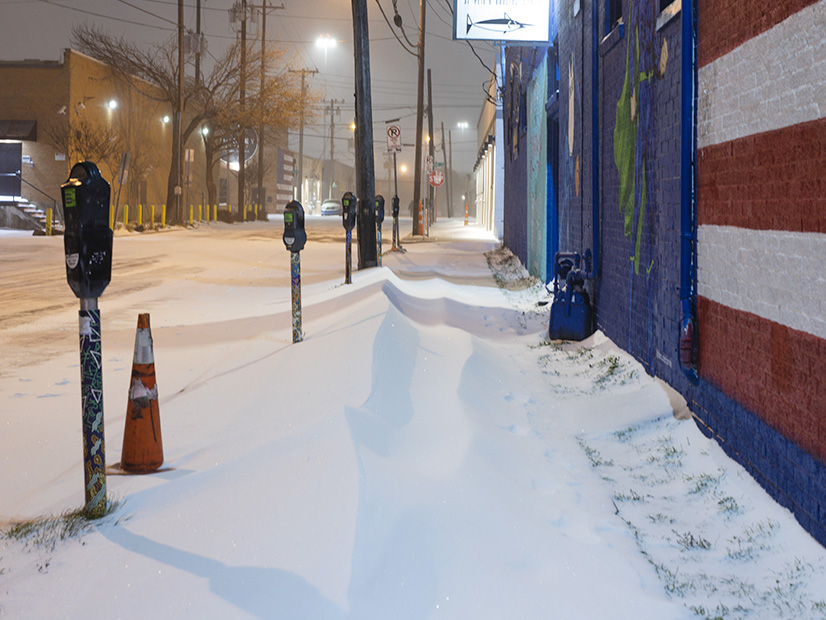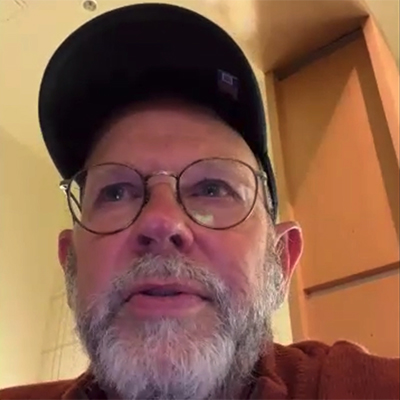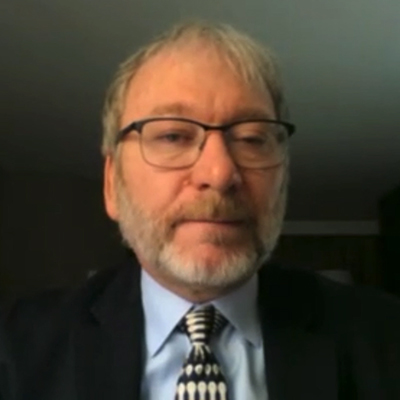
A snow-covered sidewalk in Deep Ellum, Texas, during the February 2021 winter storm.
| Matthew T. Rader, CC BY-SA 4.0, via Wikimedia CommonsThe ERO Enterprise’s work preparing the bulk electric system for extreme winter weather is far from over despite the completion of the initial effort to update reliability standards in response to last year’s winter storms, members of NERC’s Board of Trustees said Wednesday.
Meeting virtually, the board voted unanimously to adopt the new standards EOP-012-1 (Extreme cold weather preparedness and operations) and EOP-011-3 (Emergency operations), along with their implementation plan. Both standards were produced as part of Project 2021-07, begun by NERC last year in response to its joint inquiry with FERC into the February 2021 winter storm that forced thousands of megawatts of generating capacity offline in Texas and led to several days of forced outages across the state. (See FERC, NERC Release Final Texas Storm Report.)
With the acceptance of the board, the new standards will now be submitted to FERC for approval.
 NERC CEO Jim Robb | NERC
NERC CEO Jim Robb | NERCAt Wednesday’s meeting, NERC CEO Jim Robb described the new standards as the fulfillment of a promise that he and FERC Chairman Richard Glick made at the height of last February’s crisis.
“I remember being on the phone with Chairman Glick … and the one thing that the chairman and I committed at that point — to each other and effectively to all the citizens of North America — was that we weren’t going to let the lessons of this event go unheeded,” Robb said. “And we reiterated that commitment in several forums … that enough was enough and that we were really going to move forward to make sure that whatever we learned out of this event would inform all of our actions around extreme weather and cold weather preparedness.”
The joint inquiry recommended that NERC implement significant changes to its standards, and Project 2021-07 was intended as the first part of a three-phase response to the report. Four of FERC’s recommendations are addressed by the new standards:
- to require generator owners (GOs) that experience outages or other issues because of freezing to create a corrective action plan (CAP) for the affected equipment and determine whether to revise its cold-weather preparedness plan to account for the CAP;
- to require GOs and generator operators to conduct annual unit-specific cold-weather preparedness plan training;
- to require GOs to retrofit existing generating units and design new units to operate to a specified ambient temperature and weather conditions; and
- to require transmission owners and operators, and distribution providers, to separate circuits used for manual load shed from circuits used for underfrequency load shed and undervoltage load shed, or serving critical loads.
Howard Gugel, NERC’s vice president of engineering and standards, told trustees that these four recommendations were chosen for the focus of the first phase because the joint report suggested they be completed before the winter of 2022-23. The remaining six recommendations are intended to be addressed in the second phase, to be completed before winter of next year.
Trustees Support Standards, with Reservations
While board members supported the new standards in general terms, their comments made clear that this week’s vote is not the end of the conversation. Trustee Sue Kelly called Project 2021-07 merely “a down payment” on the work needed to properly address the grid’s vulnerability to severe weather, specifically saying that “this version of EOP-012 should [not] be the end of the discussion on winterization of generating units.”
She noted that the standard, as written, allows GOs to essentially opt out of implementing freeze protection measures by giving them the authority to define the “technical, commercial or operational constraints” that would “preclude the ability” to install these measures. She warned that this concession to GOs would “leave their reliability coordinators with a reduced set of generation resources to work with during the winter season.”
 Howard Gugel, NERC | NERC
Howard Gugel, NERC | NERCObserving that EOP-012-1 requires GOs to document “fuel supply and inventory concerns” in their cold weather preparedness plans, Trustee Jim Piro asked Gugel whether generators “have the ability to cause the upstream system” — specifically natural gas pipelines that feed generators — “to also winterize their systems.”
Gugel acknowledged that the standard does not give GOs that power. He suggested that such a requirement “could be placed within their fuel contracts” and added that the joint report does recommend separately that the gas industry do something to address winter preparedness in its own system.
Piro also asked whether the standard gives NERC any visibility into GOs that do opt out of the freeze protection measures, so that their potential unavailability can be factored into the organization’s winter reliability assessments. Gugel said NERC does have several means of gathering that data, from requesting it as part of the normal information gathering for the reliability assessments, to issuing alerts to compel utilities to report whether they have opted out.
While calling the new standards “a major step forward,” Trustee Roy Thilly reminded attendees that winter preparedness is “a very complex issue” that “is going to impose some pretty significant costs” on utilities. He made clear that although he sympathizes with the financial concerns of the industry, NERC cannot let this issue influence its decisions about changes that may be needed to ensure reliability.
“NERC has been, and needs always to be, concerned with and understand the cost it’s imposing on industry through reliability standards. We do that by looking at cost-benefit analysis, and we rely very heavily on industry … [which] is really in the best position to inform that analysis,” Thilly said. “But the issue of the ability to recover through rates and market tariffs is outside of NERC’s jurisdiction and … our control.”
“It’s very important that NERC urge FERC, RTOs, municipal and co-op boards and councils, and states, to take the steps necessary to enable recovery by industry participants of reasonable costs incurred to comply with mandatory NERC reliability requirements,” he added. “But it’s beyond our scope to get there, and we can’t not adopt a needed reliability standard because of concerns [about] cost recovery.”



